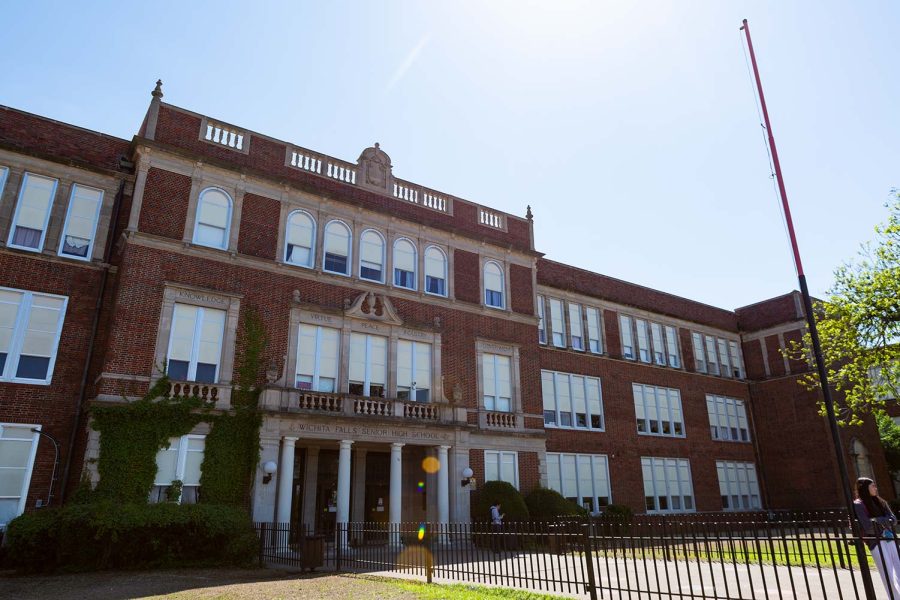City will hit stage 4 water restrictions by summer if the community does not act
OUR VIEW: As part of the community, students have to work together to save water, because the future does not promise heavy rainfall to end this drought.
Water is getting scarce.
As of Wednesday, Feb. 6, the city council announced stage three water restrictions to the public and encourages everyone to help to conserve water.
Midwestern is no exception.
As water levels of Lake Arrowhead and Lake Kickapoo have dropped to 40 percent of their capacity, Midwestern still waters its football fields, using up to 1.9 million gallons of water every month.
But this is the fault of the sandy soils, Kyle Owen, associate vice president of facilities services explains. The football fields need watering.
Wichita Falls has been in a state of drought for the last three years and nobody has thought about the possibility that the city might run out of water at some point.
It is a terrifying thought that an element as basic as water, which has always been thought of as granted, may lead to the city’s death or relocation.
These are occurrences that might happen in third world countries, in dry deserts of North Africa, where people starve and burn in the hot sun.
Wichita Falls is on the same latitude as North Africa. This here is a desert. During the hot summer months the street works as well as a frying pan to make eggs sunny-side up.
Because of the stage three water restrictions, city officials expect water consumption to be reduced by 35 percent.
This does not only include turning off the sprinkler system in the front yard, but it also affects businesses like carwashes, restaurants, pools and golf courses.
More important, the restrictions also affect bars and school cafeterias, which might soon be the only businesses left with liquids.
If the community fails to save more water, stage four water restrictions will be enacted by summer, meaning even higher water conservation surcharges.
Midwestern will have to pay the city even more to maintain municipal water for the campus’s use.
Limiting water usage in campus housing will not be expected, as Owen promised, but that does not mean that students should not worry about the situation.
Conserving water during these dry times is necessary to prevent further damage the community. This city will have to work together and become more aware of how much water each person uses.
Simple habits as letting the water run while brushing your teeth or soaping your hands does not seem like a significant waste of water, but it all adds up.
If everyone would pay more attention to water consumption and would take a bath instead of a shower once a week, this community could make a change.
The change could start right here on campus.
Owen pointed out Midwestern’s awareness to water conservation. The evidence is the low-flow toilets and the conserving shower heads on campus.
But these luxury goods are not going to help the fact that another four years of drought are expected.
The National Weather Service predicts that the heat will go on for a longer time, because a cyclical drought, which can last seven years or longer, has hit the city.
With this pace, there will not be any lakes in this area by 2017 and it seems it may already be too late to think about innovations to bring water to this desert.
So the only solution to the drought problem is to conserve water and treat it sacredly, because praying for rain is not going to help.











